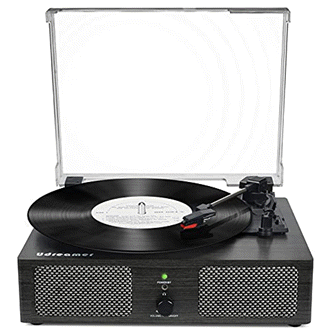2025-09-01 13:13:00
phys.org
![Carbapenemases production analyzed by Blue-Carba in influent (IF) strains growth in MCC + M plates. a K. pasteurii M2/A/C/34, b K. pneumoniae subsp. pneumoniae M3/A/M/3, c C. freundii s.str. M4/A/C/32, d K. pneumoniae UCO368 (KPC [+] control), e: K. pneumoniae UCO361 (NDM [ +] control), f K. pneumoniae UCO322 (OXA-48 [+] control), g E. coli ATCC25922 (negative control). Credit: Biological Research (2025). DOI: 10.1186/s40659-025-00612-7 Multidrug-resistant KPC-producing bacteria detected in Chilean wastewater for the first time](https://scx1.b-cdn.net/csz/news/800a/2025/multidrug-resistant-kp.jpg)
A team of Chilean researchers has identified, for the first time in the country, the presence of KPC-type carbapenemase-producing bacteria in wastewater samples from the Greater Concepción Metropolitan Area. The finding, published in the journal Biological Research, raises concerns about the environmental circulation of microorganisms with high levels of resistance to critical clinically used antibiotics and reinforces the need for surveillance within the framework of “One Health.”
The research, which was part of Franco Ilabaca’s Master’s thesis in Microbiology, was led by Dr. Gerardo González-Rocha, director of the Antibacterial Agents Research Laboratory at the University of Concepción and thesis advisor, Dr. Andrés Opazo-Capurro, director of the FONDEF IDeA project, and Dr. Helia Bello-Toledo, thesis co-advisor, in collaboration with the MELISA Institute and other institutions. The research consisted of the collection and microbiological and genomic analysis of wastewater samples taken during 2022 at a treatment plant that serves more than 950,000 people in the Biobío Region.
“The idea is to see how antibiotic resistance is not only present in bacteria found in hospitals, but can also be present in wastewater or the environment, and to emphasize that the research approach to antibiotic resistance cannot be limited to human health alone, but can also include environmental and animal health, which is known today as a One Health approach. So, the main objective was to see if we can find these resistance mechanisms that are so common in hospitals in wastewater,” explained Dr. González-Rocha.
Of a total of 205 bacterial isolates, three strains were identified as producers of the KPC enzyme, a type of carbapenemase that confers resistance to last-line antibiotics. These strains corresponded to the species Klebsiella pasteurii, Klebsiella pneumoniae subsp. pneumoniae, and Citrobacter freundii sensu stricto, all with multiple antibiotic resistance profiles and carrying the blaKPC-2 gene.

Genomic analysis also revealed that these strains contained plasmids associated with the dissemination of resistance genes and, in some cases, class 1 integrons, which increase the bacteria’s ability to acquire new resistance determinants. In evolutionary terms, two of the strains analyzed showed genetic similarities with others previously identified in Asia and Europe, suggesting their possible introduction from abroad and adaptation to local contexts.
Regarding these analyses, the researchers performed it using the Illumina NextSeq 500 platform, complemented by bioinformatics tools such as FastQC, Unicycler, and Bakta for genome evaluation, assembly, and annotation, along with specialized software to identify resistance genes and plasmids involved in their dissemination.
Mauricio Hernández, Laboratory Head at the MELISA Institute, explained, “It was a pleasant experience for us to collaborate with Dr. González’s group and support genome sequencing. This also contributes to research into multidrug resistance to antibiotics, which has become a global health problem and requires a significant increase in research.”
The researchers warn that, although the detected prevalence is low (1.5%), the presence of carbapenem-resistant bacteria in urban environments represents a warning sign. Early identification allows for anticipating public health risks and implementing timely preventive measures. Therefore, it is essential to analyze wastewater and study whether treatment plants are capable of eliminating both bacteria and resistance genes.
For his part, Dr. Elard Koch, Chairman of the MELISA Institute, emphasized the importance of collaboration and knowledge dissemination, “Studies like this reinforce the vital need for strong scientific collaborations. They allow us to generate and share knowledge on topics of high relevance to society. Collaborative research is undoubtedly essential not only for scientific dissemination, but also for fostering a deeper public understanding of complex phenomena such as antimicrobial resistance.”
More information:
Franco Ilabaca-Carrasco et al, Detection of KPC-producing Enterobacterales species in wastewater samples from the Gran Concepción Metropolitan area, Chile, Biological Research (2025). DOI: 10.1186/s40659-025-00612-7
Provided by
MELISA Institute
Citation:
Multidrug-resistant bacteria detected in Chilean wastewater for the first time (2025, September 1)
retrieved 1 September 2025
from https://phys.org/news/2025-09-multidrug-resistant-bacteria-chilean-wastewater.html
This document is subject to copyright. Apart from any fair dealing for the purpose of private study or research, no
part may be reproduced without the written permission. The content is provided for information purposes only.
Enjoy the perfect blend of retro charm and modern convenience with the Udreamer Vinyl Record Player. With 9,041 ratings, a 4.3/5-star average, and 400+ units sold in the past month, this player is a fan favorite, available now for just $39.99.
The record player features built-in stereo speakers that deliver retro-style sound while also offering modern functionality. Pair it with your phone via Bluetooth to wirelessly listen to your favorite tracks. Udreamer also provides 24-hour one-on-one service for customer support, ensuring your satisfaction.
Don’t miss out—get yours today for only $39.99 at Amazon!
Help Power Techcratic’s Future – Scan To Support
If Techcratic’s content and insights have helped you, consider giving back by supporting the platform with crypto. Every contribution makes a difference, whether it’s for high-quality content, server maintenance, or future updates. Techcratic is constantly evolving, and your support helps drive that progress.
As a solo operator who wears all the hats, creating content, managing the tech, and running the site, your support allows me to stay focused on delivering valuable resources. Your support keeps everything running smoothly and enables me to continue creating the content you love. I’m deeply grateful for your support, it truly means the world to me! Thank you!
|
BITCOIN
bc1qlszw7elx2qahjwvaryh0tkgg8y68enw30gpvge Scan the QR code with your crypto wallet app |
|
DOGECOIN
D64GwvvYQxFXYyan3oQCrmWfidf6T3JpBA Scan the QR code with your crypto wallet app |
|
ETHEREUM
0xe9BC980DF3d985730dA827996B43E4A62CCBAA7a Scan the QR code with your crypto wallet app |
Please read the Privacy and Security Disclaimer on how Techcratic handles your support.
Disclaimer: As an Amazon Associate, Techcratic may earn from qualifying purchases.



























































![[5-Yrs Free Data Recovery] GIGASTONE 256GB SD Card, 4K Camera Pro, A1 V30 SDXC Memory…](https://techcratic.com/wp-content/uploads/2025/09/51F2IcqgHrL._AC_SL1000_-360x180.jpg)












































